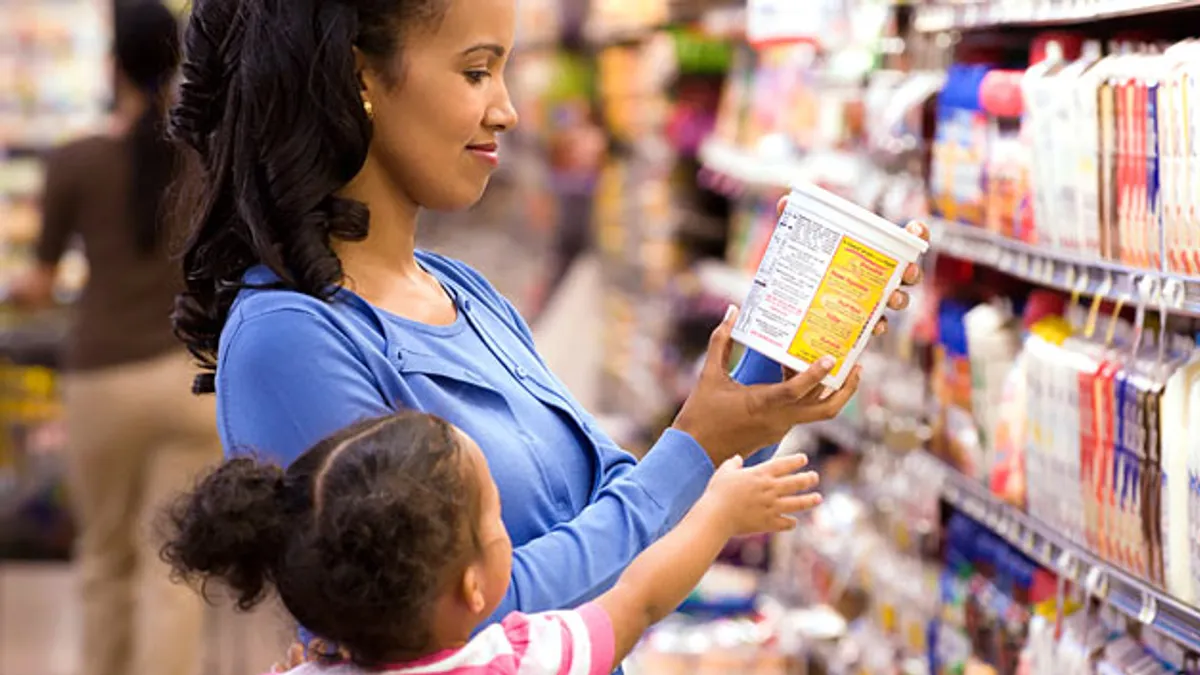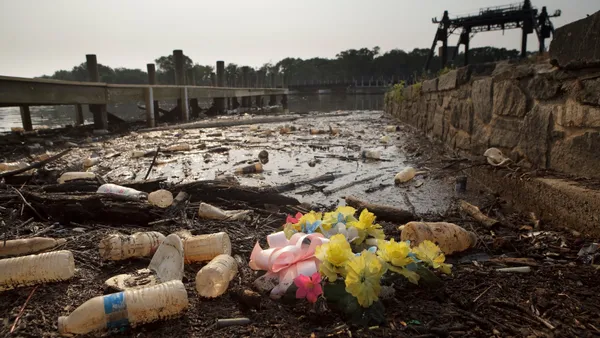Dive Brief:
- San Francisco Assemblyman David Chiu has proposed California food labeling legislation to give consumers standard, clear guidelines on the timeframe that they can safely hold onto food.
- If proposal AB 2725 is signed into law, manufacturers would be required to affix one of two labels: "Best if used by" to signify when the food’s quality is optimal, and "expires on" to indicate the timeframe that very perishable foods are safe to eat, according to The San Francisco Gate.
- Currently, food label dates are not federally regulated (other than for baby formula), and the current trend is for the dates to suggest foods should be tossed before they are unsafe, say food scientists. While manufacturers currently control most of food labeling, the California Department of Public Health would determine which foods get an "expires on" date.
Dive Insight:
Americans waste $218 billion worth of food every year according to a report titled Rethink Food Waste Through Economics and Data. This waste isn't necessarily because food has gone bad, even though many consumers toss because they assume it's unsafe, based on the label.
In most cases, people don’t get sick from aging food, according to Dana Gunders, a scientist at the Natural Resources Defense Council, which is co-sponsoring the bill.
"Instead, food makes people sick because it was contaminated with E. coli, salmonella, or other pathogens — and time won’t make a difference in most cases," she said to the San Francisco Gate.
Standardizing dates on labels could keep around 398,000 tons of food out of landfills. Besides the reduction in gas emissions, the law would come with other benefits: consumers spending less on food; helping stock food banks who could accept products longer; and enabling consumers to act with certainty, on science-based knowledge.
Recently, International Solid Waste Association President echoed these desires to change food sell-by labels in a conversation addressing the circular economy. "This drives me bananas, when I see a package of salt with a sell-by date or a jar of honey with a sell-by date. We all know that salt and honey can't go bad, but anybody looking at it in their kitchen is going to throw it away. That's creating waste," he said.












